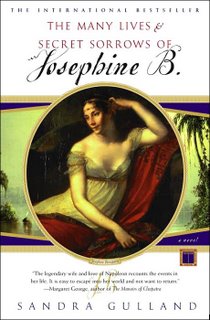The Unbearable Lightness of Being (Milan Kundera)
 This read had been a long time coming for me. It's been on my recommended list for years and yet whenever I am confronted with the limitless possibilites of a bookstore or library shelf, Kundera's name slips from my mind on a slapstick banana. The moment I picked it up, however, the pages flew by the same way--with slippery speed and laughter.
This read had been a long time coming for me. It's been on my recommended list for years and yet whenever I am confronted with the limitless possibilites of a bookstore or library shelf, Kundera's name slips from my mind on a slapstick banana. The moment I picked it up, however, the pages flew by the same way--with slippery speed and laughter.I would consider this book to be a good example of meta-fiction. I remember a graduate workshop I took where all the older students kept saying, "Dude, that is so meta" much to my confusion. In this case, however, I will quote them. Meta, man, very meta. Meta, of course, meaning written with the conscious desire to display the work as in the act of being written. Meaning the author is playing with the writer/reader relationship, often making the reader a participant in the action of the story. Let me quote the text itself:
"The characters in my novels are my own unrealized possibilities. That is why I am equally fond of them all and equally horrified by them. Each one has crossed a border (the border beyond which my own 'I' ends) which attracts me most. For beyond that border begins the secret the novel asks about. The novel is not the author's confession; it is an investigation of human life in the trap the world has become. But enough. Let us return to [the story]."
With this technique, Kundera creates an interesting frappe of philosophy and character. He bases each of his main characters on a philosophic principle and then stretches this principal for the course of the character's existence. I love how these principals, though, seem to me to be bathroom or bus philosophical realizations. Let me explain--random thoughts that occur in places where it is impossible to discuss or write down for future discussion, ideas that seem very deep at the time and drift away like feathers when remembered later, leaving you disappointed at what you thought was your brilliance and wisdom. Examples of Kundera's principals in action:
The character of Tereza: Is it possible to see your personality on the surface of your skin as you look in a mirror?
The character of Tomas: How can we know our choices are good or bad if we only experience them once, which offers no second consequence for comparison?
I highly recommend this entertaining novel, which is not as descriptive as I normally enjoy. It is instead highly cognitive and humorously so. Check out his discourse on shit and kitch and Stalin's son's suicide. Excellent shit, if you don't mind the pun.



